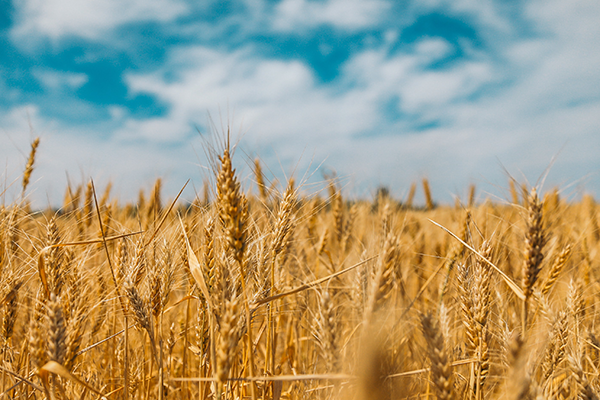The Snowball Effect of the Russian-Ukraine War

Written by Connor Fairfield, CSEEES Autumn 2022 Intern
Russia’s invasion of Ukraine has been nothing short of devastating, especially for the people of Ukraine, but it has also affected many others around the world. Outside of Ukraine, an area of the world that has faced numerous hardships is the continent of Africa. The invasion of Ukraine has created a negative snowball effect of issues including a stalled recovery from COVID-19, a dramatic increase in global food and fuel prices, disruption of trade goods and services, and a decrease in financial stability within the majority of African countries.
In the years leading up to the pandemic, Africa was considered one of the fastest growing areas of the world. Once COVID-19 set in, it undid decades of work in both the economic and social sectors of multiple African countries. After two full years, the majority of African countries were able to recover. That was until February of 2022 when Russia invaded Ukraine. The biggest concern for many experts is that this setback would spur an even bigger crisis that Africa has historically struggled with for generations: food insecurity.
Africa had already been facing a food crisis even before the Russian invasion of Ukraine. Multiple areas of Africa are experiencing differing climate crises that negatively affect their agriculture and farmland. As UNDP Representative of Ghana Dr. Angela Lusigi explains, “in terms of food insecurity, there was a crisis before this crisis”. As one of the biggest importers of grain to the continent of Africa, Ukraine not being able export anything has only compounded the already dire food crisis within Africa. There have been efforts among a variety of African countries to try and combat the problems of food insecurity. For example, many countries have opted to try and decrease their exports of food. This may seem like a viable option that will pay off in the short term, however, in the long term these countries will not benefit from these actions. Not only will it penalize producers who do not see the true market value of their products, but it will also deter investments in future production. Furthermore, consumers and manufacturers alike will be unable to access products from elsewhere as the prices of imports will increase exponentially.
The question that remains is: how does the continent of Africa find a way to combat these crises? Many experts on the situation believe that substantial and meaningful help can come from countries such as the United States. The relationship between the United States and African countries has always been described as broad and diplomatic with little interaction. In order to help Africa, the United States business community needs to view Africa as a place of opportunity to invest and help rejuvenate economies. By reinvigorating economies, trade and commerce in food and other important exports can begin to flow within Africa once again. This also means that the United States needs to frame policies that begin Africa’s integration within our global economic and commerce systems. Such a move would require working effectively with regional and subregional organizations like the African Union and the Economic Community of West African States. This would also mean improving relationships from state to state and even city to city in Africa. For example, instead of U.S. businesses investing at the national level of an African country, they would instead imbed themselves within a local community within a country such as the cities of Kumasi and Tema in Ghana, two of the biggest cities in Western Africa. The hope here is that once United States investors begin investing at the local level within African countries, this new economic aid can develop on a bigger scale. In other words, if the investment projects are a success on the local level in African cities, investors will then be more inclined to take on bigger and more substantial projects on the national level, which is key to the economic growth of many African countries.
The Russian invasion of Ukraine has created a downward spiral of crises within the continent of Africa that will most likely take years to overcome. The longer this war lasts, the more long-lasting damage will be inflicted upon the continent. Most of the world has done everything in its power to help support Ukraine in its defense against the Russian invasion. This, however, does not mean that we as a global community can turn our backs on other areas of the world that are also being deeply affected by this crisis. African nations will need to find ways to recover on their own, but that doesn’t mean countries like the United States should not be eager to help as well. As United Nations Assistant Secretary-General Ahunna Eziakonwa states “The African continent is facing uncommon and unprecedented exogenous shocks in the wake of COVID-19 and the war in Ukraine. It cannot deal with this alone. Ensuring a speedy, inclusive and sustainable recovery across Africa needs all of us to come together to make it happen.” Africa has asked for help. It is our responsibility and duty as a global community to answer the call.
